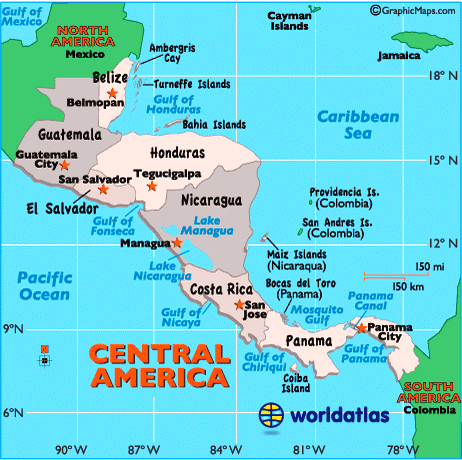
The Institute for Central American Studies
Bienvenidos/Welcome! The Institute for Central American Studies / ICAS, was founded in San Jose, Costa Rica in 1982 as an educational institute. During its first six years ICAS concentrated on two programs: publishing Mesoamerica, a monthly newsletter that summarized in English major events in each of the countries within Central America; providing six month internships in journalism (more than 300 participants from around the world gained valuable experience during the 26 years of publication). And secondly, organizing Reality Tours of Central America, primarily to provide North Americans a first-hand experience of life in the region and to assess the impact of U.S. foreign policy.
In 1988 ICAS began providing logistical support to study abroad programs from colleges and universities, primarily from the U.S. Between 1988-2014 ICAS administered programs for more than a dozen institutions of higher learning, and beginning in 1994 also managed various high school programs. In 1991 ICAS created its own language school, the Mesoamerica Language Program. Between 1982-2014 ICAS collaborated with many educational entities, non-governmental organizations, and various groups to accomplish its mission-to promote the well-being of the people and land of Central America.
In 2014 when the second executive director of ICAS was planning to retire, the board decided to transfer various ongoing programs to the Institute for Central American Development Studies/ICADS. In 2015 ICAS relocated to Guanacaste, Costa Rica and in August appointed long-time board member Richard Holland as the new executive director. The Guanacaste Province in Costa Rica is the southern boundary of the historic region of Mesoamerica and Central America's Pacific Dry Tropical Forest, but after 500 years of agricultural expansion and altering the climate along the Pacific Coast the area has become known as the Central American Dry Corridor.
As we reported in the late 80's the events of Iran/Contra, a fortunate outcome of the illegal activities was a reclamation of land used for illicit purposes and the largest reforestation program of the Dry Tropical Forest, resulting in the Guanacaste Conservation Area. ICAS has partnered with several of the Haciendas surrounded now by forest to promote regenerative farming and demonstrate how cattle ranching can contribute to building healthy soil. ICAS provides a hands-on experience of agroecology and is collaborating with a network of organizations promoting the benefits of agroforestry and carbon sequestration. Our sustainable agriculture education center will be made available to study abroad programs, providing 1,600 hectares (4,000 acres) for experiential learning.
To learn more about our Regenerative Agriculture program and consulting services, contact our executive director at: rickholland@igc.org.